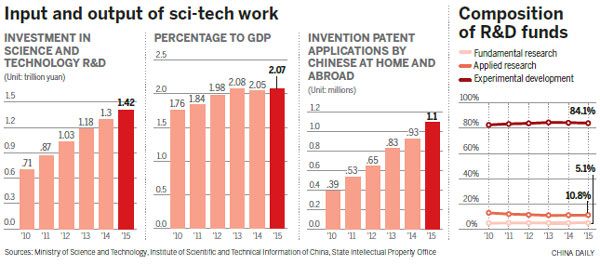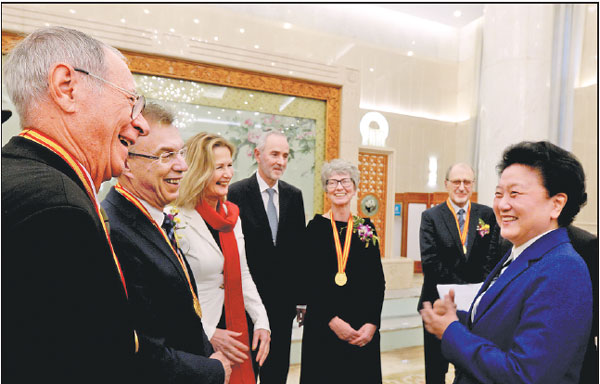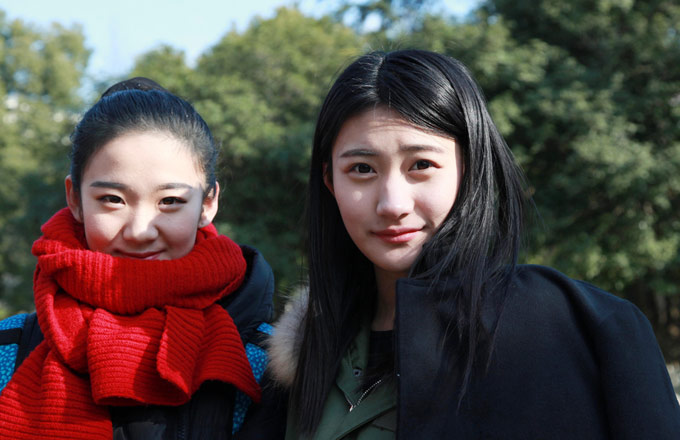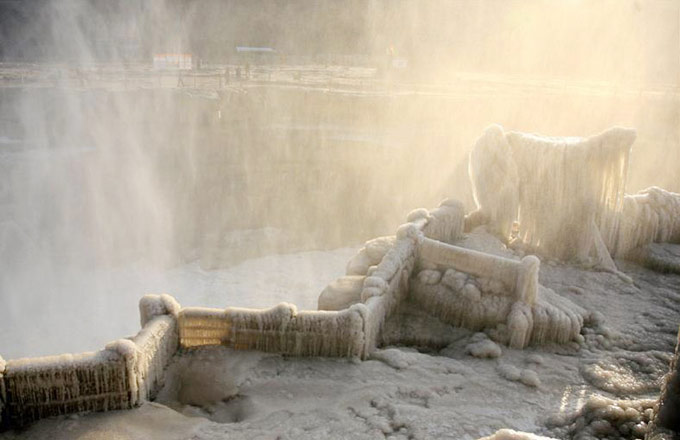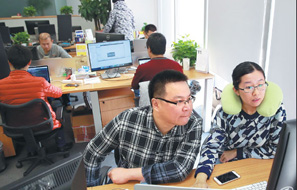Superconductor researcher, 75, among the youngest recipients
|
Vice-Premier Liu Yandong (right) interacts with winners of the International Science and Technology Cooperation Award and their families after an annual ceremony was held to honor distinguished scientists and research achievements in Beijing on Monday.Zhou Weihai / For China Daily |
Seventy-five-year-old physicist Zhao Zhongxian would use any word but young to describe himself.
But when he stepped on the stage with Tu Youyou to received his certificate - the Preeminent Science and Technology Award - from President Xi Jinping, he was among the youngest to win the prize.
Since it was established in 1999, the top prize has previously been awarded to 25 scientists, including those who developed China's first atomic and hydrogen bombs and satellites.
"Zhao is representative of Chinese scientists who grew up with a scarcity of research resources, but gained an international reputation through their own efforts," said Wang Yupeng, director of the Institute of Physics affiliated with the Chinese Academy of Sciences.
Born in January 1941, Zhao graduated from the Department of Technical Physics at the University of Science and Technology of China and has been working at the institute since 1964.
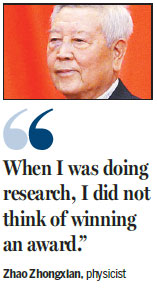
For more than half a century, he has been committed to the development of better-performing superconductors - materials that have little electric resistance under certain circumstances. Superconductivity can be used to increase the accuracy of atomic clocks on satellites, speed up computers, enhance the precision of gyroscopes on navigation devices and other potential applications.
Despite the wide range of possible uses, however, superconducting conditions have been hard to achieve because it only takes place at super-cold temperatures, - 233 C or below.
In 1987, Zhao discovered a copper oxide superconductor that could work at - 173 C - a temperature that can be created by nitrogen. The discovery dramatically increased practicality of superconductors.
Over the following two decades, Zhao moved forward in search of new materials. He found an iron-based superconductor that functions at-223 C that could expand the use of superconductors and answer new theoretical questions.
"In the history of superconductors, there were two major breakthroughs in new materials, which could increase the practicability of superconductors. Zhao contributed to both breakthroughs," institute director Wang said.
For Zhao, the search for new materials is never-ending.
"When I was doing research, I did not think of winning an award. All I wanted to do was to make some contribution to scientific advancement. China has one-fifth of the world's total population; we should have the determination and the capability of contributing more to the progress of humankind," Zhao said.
"I have been frequently asked how I kept working in such difficult conditions with outdated equipment and insufficient lab materials. For me, holding on to my research is like someone playing mahjong until midnight - you may want to stop because the time is late, but you will just keep playing because you are having fun."
"The discovery of the iron-based superconductor is just a beginning. If any new breakthroughs are made in the future, there should be contributions made by us," he said.
